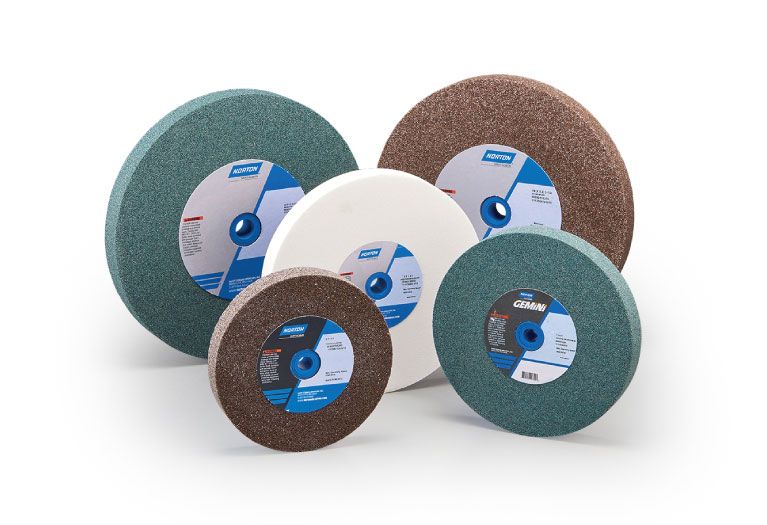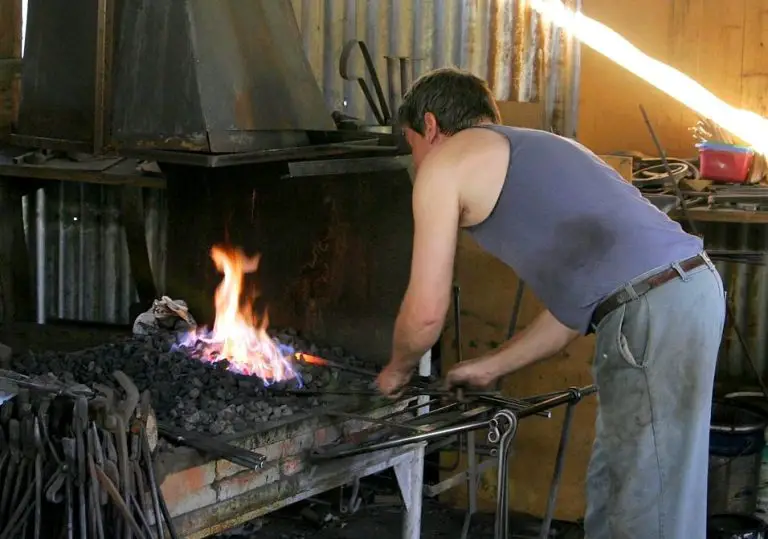What’S The Best Bench Grinder On The Market?
A bench grinder is an essential tool for any metalworking shop. It consists of a rotating grinding wheel powered by an electric motor. Bench grinders are used for a variety of grinding, polishing, shaping, and sharpening applications. They enable efficient material removal and finishing on metal pieces.
Key features to look for in a quality bench grinder include motor power, wheel size and grit, variable speed control, and overall durability. Good bench grinders allow for precise control over the grinding process. They have adjustable work rests to support the material being worked on. Quality bench grinders are powerful enough to handle tough grinding jobs without overheating or slowing down.
When shopping for a bench grinder, it’s important to consider the types of materials and applications it will be used for. industrial metal fabrication requires more powerful grinders than home shops. Bench grinders are versatile tools that enable metalworkers to efficiently shape and finish their projects.
Safety
Bench grinders are powerful tools that require proper safety precautions. According to Bench Grinder Safety Tips, you should always wear protective eyewear to shield your eyes from flying debris. Also wear a dust mask or respirator to avoid inhaling any particles. Make sure the grinder is securely mounted and check that the wheels are in good condition with no cracks. Do not use the grinder if it vibrates excessively. Never grind material for which the machine is not designed, such as aluminum. Allow the grinder to reach full speed before applying the workpiece. According to Bench Grinder Safety Do’s and Don’ts, don’t grind on the side of the wheel and don’t stand directly in front of the wheel during use. Keep your hands a safe distance from the grinding wheel and never wear gloves that could get caught. Make sure the tool rest is properly adjusted to avoid pinching the workpiece. Always unplug the grinder before changing wheels or making adjustments. Follow the manufacturer’s instructions and maintain the grinder carefully for optimal safety.
Motor Power
The motor power of a bench grinder is a key factor in determining its performance and suitability for different tasks. Common motor power ratings for bench grinders range from around 1/3 HP to 1 HP.
Smaller bench grinders in the 1/3 to 1/2 HP range are suitable for general home use, sharpening tools, and light material removal. According to sources, a 1/3 HP motor with a 6-inch wheel usually provides enough power for most home workshop tasks (Source).
For more heavy duty use, a 3/4 to 1 HP motor is recommended. Bench grinders with higher horsepower motors in this range have more torque and can handle heavier workloads like grinding large tools, removing lots of material, and working with hard metals. As one expert discusses, underpowered grinders can lead to the wheels slowing down and glazing over during heavy grinding (Source).
It’s important to match the motor power to your intended uses. A 1/2 HP grinder may be suitable for most home uses while a 1 HP model provides more power for heavy duty grinding. Checking the motor power specs can ensure you choose a bench grinder with enough power for the jobs you’ll use it for.
Wheel Size
Bench grinders typically come with either 6-inch or 8-inch grinding wheels. The wheel size has pros and cons to consider:
6-inch wheels:
- Smaller and lighter, easier to handle
- Lower power requirements
- Wheels and replacements tend to be less expensive
- Better for small tools and precision work
- Less surface area for grinding
8-inch wheels:
- More powerful for heavy duty grinding
- Larger surface area allows faster material removal
- Better for large tools and jobs requiring heavy grinding
- Wheels tend to be more expensive
- Require more power from the motor
Many DIYers and hobbyists find 6-inch wheels suitable for most home shop tasks (Source: Reddit r/Tools). However, 8-inch wheels allow faster stock removal for major grinding jobs. Consider how you plan to use the bench grinder when choosing between these two common sizes.
Wheel Grit
An important factor when choosing a bench grinder is selecting the right grit grinding wheel for your needs. The grit of a grinding wheel refers to the size of the abrasive particles bonded to the wheel. Generally, the coarser the grit, the more aggressively the wheel cuts material. Finer grits produce smoother, more polished finishes.

For most bench grinding applications on metal, a 36 or 46 grit aluminum oxide wheel is a good starting point. This provides reasonably aggressive grinding action without overheating the metal. A 46 grit zirconia alumina wheel is another excellent choice. It cuts slightly faster than aluminum oxide.
For sharpening tools and making precise cuts, an 80 grit wheel is better suited. The finer grit allows greater control and reduces risk of removing too much material. Grinding wheels in the 100 to 120 grit range produce very smooth finishes for final polishing and finishing work.
It’s best to choose a high quality, branded grinding wheel from reputable manufacturers like Norton, 3M, or Walter. Pay close attention to the maximum safe rpm rating and make sure it is compatible with your grinder’s speed.
With experience, you’ll get a feel for which grit wheels work best for your applications. It’s worth experimenting with different grits to find the ideal balance of cutting speed and finish quality.
Speed Control
Variable speed control is an important feature for a bench grinder. Having the ability to adjust the speed allows for more control and precision when grinding different materials. High speeds are better for soft materials like aluminum, while slower speeds help prevent overheating when working with hard materials like tool steel. According to a thread on Practical Machinist, most bench grinders run at a single speed around 3450 RPM. However, many woodworkers and metalworkers prefer variable speed grinders in the range of 2000-3800 RPM for finer work.
The ideal bench grinder will have a variable speed motor or allow for easy installation of a third party speed controller. Top brands like Delta and Rikon offer variable speed options on many of their grinders. Adding a VFD (variable frequency drive) is a simple way to convert a single speed grinder to variable speed. This mod allows you to dial in the exact speed needed for a particular grinding application.
Design and Build
The design and build quality of a bench grinder is crucial for safety and performance. Look for the following features when evaluating a grinder’s construction:
Sturdy Base: The grinder should have a heavy cast iron or steel base to reduce vibration and keep the wheels true during operation. The base size should also match the wheel diameter for stability.
Wheel Guards: Safety wheel guards are a must to contain sparks and debris. Guards should fully enclose the top and sides of grinding wheels and have a see-through window to observe the process.
Tool Rests: Adjustable tool rests allow you to position workpieces at the optimal angle to the grinding wheels. They should be sturdy and allow for fine adjustment. Integrated spark deflectors are also helpful.
High-end bench grinders will also offer features like ball or roller bearings for the wheel spindles, sealed switch housings to keep out dust, and cast iron wheel flanges to withstand high speeds. Overall, opt for the most heavy-duty grinder in your budget for safety and durability.
Top Brands
When shopping for a bench grinder, you’ll come across some well-known and trusted brands. Here’s an overview of some of the top players in bench grinders:
JET
JET is a leading manufacturer of woodworking and metalworking machinery. They offer a range of heavy-duty bench grinders designed for hard use in workshops and garages. JET grinders feature powerful motors with higher horsepower than many competitors. They also utilize quality components like self- aligning ball bearings and cast iron bases. If you need a rugged and reliable bench grinder that can stand up to frequent use, JET models like the 577102 are an excellent choice.
WEN
WEN is best known for affordable and user-friendly power tools. Their bench grinders offer great value without sacrificing key features. WEN grinders are equipped with adjustable eye shields, spark deflectors, and tool rests. They provide plenty of power from 2/3 to 3/4 horsepower motors. For hobbyists on a budget or folks who only need occasional grinding work done, WEN models like the 4276 offer unbeatable bang for your buck.
RIKON
RIKON specializes in manufacturing workshop equipment for woodworking. Their bench grinders are optimized for shaping, sharpening, and smoothing woodworking tools. RIKON offers 6″ and 8″ models with sturdy steel construction and reliable motors. They tend to include extras like strong LED work lights. For woodworkers looking for a grinder designed specifically for woodworking applications, RIKON’s bench grinders are a superb choice.
Budget Options
For those on a budget, there are several inexpensive bench grinders that still provide good performance and durability under $200. These budget options may lack some extra features of more expensive models, but they deliver on the essential capabilities most DIYers need in a bench grinder.
The WEN 4276 is an excellent choice under $100. This 6-inch grinder has a powerful 2.1-amp motor, adjustable tool rests, eye shields for safety, and a flexible work light. It runs smoothly and quietly thanks to the pre-balanced wheels. The coarse 36-grit wheel is good for aggressive grinding and shaping, while the 60-grit fine wheel gives a smoother polish.
Another top value pick is the JET 577102. This industrial-quality grinder comes in just under $200 but punches above its weight. With a powerful 1/2 HP motor, large 8-inch wheels, adjustable tool rests and spark guards, the JET 577102 is built to last through heavy duty work. The wheels give optimal grinding action, and the whole unit sits sturdily on a cast iron base.
For those who need a compact bench grinder, the SKIL 3380-01 is a great budget-friendly option at around $120. It features 6-inch grinding wheels, 2.1 amp motor, and adjustable work heads to get grind angles dialed in. The enclosure helps contain sparks, and the dust ports allow for easy cleanup. Weighing only 35 pounds, the SKIL 3380-01 can easily be moved as needed.
While cheaper bench grinders may lack some power or durability, these budget picks offer very solid performance and reliability. With a little shopping around, you can find an inexpensive grinder well-suited for most home workshops and DIY projects.
Conclusion
After reviewing the key factors to consider when choosing a bench grinder, a couple models stand out as providing the best overall value and performance. The Shop Fox W1827 is an excellent choice for a full-featured, durable, and adjustable 8″ grinder at a very reasonable price. It offers a sturdy cast iron frame, 1/2 HP motor, efficient dust collection, and adjustable tool rests. For buyers on a tighter budget, the WEN 4276 offers similar performance and functionality for an even lower cost. While not as heavy-duty, it still provides good power and speed with convenient safety features.
The most important factors for choosing a quality bench grinder are having an adequately powered motor, adjustable tool rests, good wheel size for your uses, and preferred speed settings. Considering these features along with your budget will make it easier to select the right grinder for your workshop. Proper use and safety precautions are also essential when operating these machines. With the right bench grinder that fits your needs, you’ll be prepared to sharpen tools and complete grinding work with ease.





